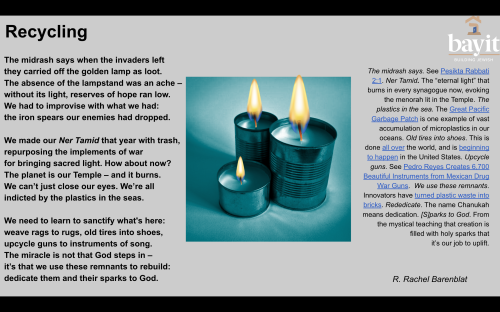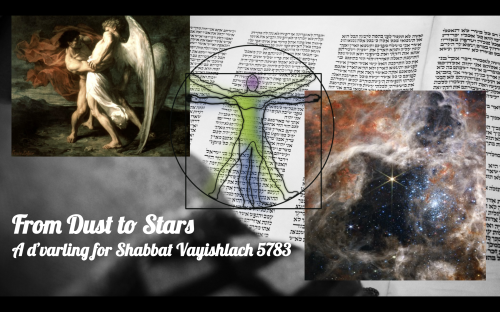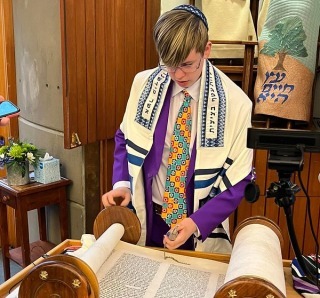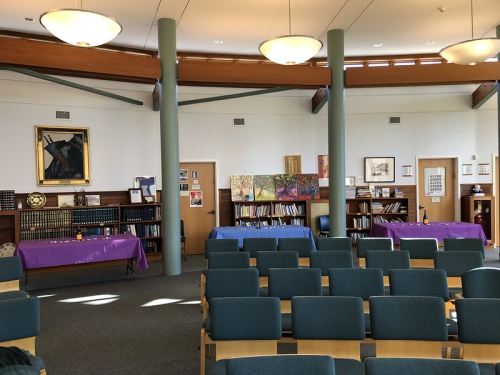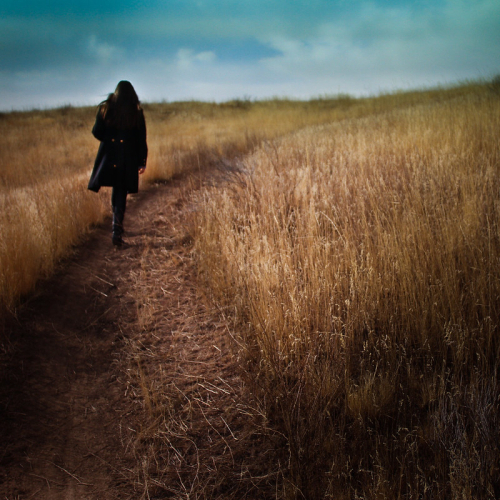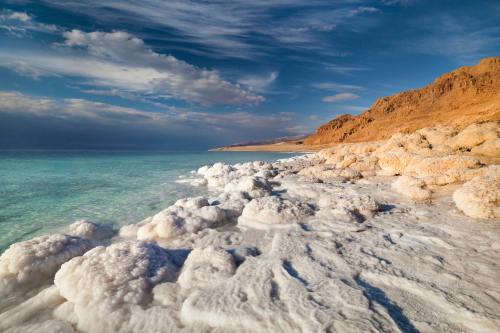Rachel Barenblat's Blog, page 22
December 24, 2022
When the darkness around us is deep...
A reporter from The Berkshire Eagle reached out to me recently to ask what I'm speaking / preaching about during this holiday season. I wrote back that the framing of the question is a little bit off for me, since for me as a Jew "the holidays" doesn't mean December, it means the Days of Awe, which happened a few months ago.
I figured that would be the end of it. The article is about what local clergy are saying at Christmastime, I don't give a Christmas sermon, end of story. To my surprise, she read two of my high holiday sermons (Tools for Tough Times and Balancing Life and Death) and then emailed me with more questions. And my words close out the article!
On my Rosh Hashanah teaching:
This year it felt more important than ever to speak honestly about what's broken in the world, not in a way that compounds despair but in a way that brings light to dark places and hope to tough times...
For the second year in a row, at Rosh Hashanah I referenced Mariame Kaba's teaching that hope is a discipline. It's not a feeling, it's not optimism, it's a practice. We create hope when our actions aim toward a little bit more justice and a little bit more love. Facing what's broken doesn't mean we despair. It means we roll up our sleeves and do what we can to build a better world...
On what I'm thinking about now, during thi week of solstice and Chanukah:
...The light of our souls persists, even when ��� as William Stafford put it ��� 'the darkness around us is deep.' And we never know how our own light might help others in their times of darkness.
Read the whole article here: Berkshires religious leaders share a holiday message of hope, and a reminder that if your faith feels tired, look toward the light.
December 19, 2022
Chanukah light in a small town
The small town where I live has had a rocky few years. A police officer sued the town alleging racism. That revealed the poster of Hitler in another officer's locker. Then came allegations of misconduct. The town formed a Diversity, Inclusion, and Racial Equity committee -- and then five out of six people of color on that committee resigned. There were threatening emails. Town Facebook groups exploded.
Last year, town clergy together hosted a series of interfaith Listening Circles. We talked about faith and race and feeling welcome (or not) and what we want our town to be. The Hitler poster and police misconduct impacted some of us. Accusations of racism impacted some of us. Racism impacted some of us. What might it look like to pursue both justice and reconciliation? What would that ask of us?
What does it mean to feel that we "belong" here, if we moved here from somewhere else -- or if we didn't? How can we collectively avoid the zero-sum notion that if our town becomes more welcoming to newcomers and minorities, it necessarily becomes less welcoming to the people who grew up here? While we're at it, who defines what is and isn't "welcoming"? What do we owe to each other?
I learned in those conversations that some Jews feel simultaneously invisible and unwelcome here. It's a double-edged sword: not sure people know we're here, and also not sure we'd be welcome if people did know we're here. The experience of being a religious minority isn't new. But it takes on a different valance in a time of rising antisemitism, and these last few years have surely been that.
Against all of these backdrops, members of the Williamstown Chamber of Commerce reached out. They'd been urged to expand the diversity of celebrations encompassed in the Town's December holiday activities. Would a Town menorah be meaningful? Conversations ensued. Fundraising ensued. Fast-forward to where we are now: last night my son and I helped to dedicate the new Town menorah.
The Town menorah stands on the lawn of the big downtown Inn, visible all the way up Spring Street. (If you're imagining a town like Stars Hollow from Gilmore Girls, you're not far off.) We live in a society shaped by Christian practices and assumptions. Christmas is in the music, the advertisements, the red and green everything. For some of us, simply seeing a Jewish tradition in public is a balm.
Representation matters -- just ask any kid who finally sees a character like them in a book or on TV and feels a wash of inchoate relief at that sense of validation. Having a big visible symbol of Chanukah can evoke a similar feeling. For me the Town menorah is a lovely expression of diversity and pluralism. (I'd love to see more cultures and traditions uplifted. Next year, a Town iftar, perhaps?)
I've never felt invisible or unwelcome here as a Jew... but knowing that some of those whom I serve have felt that way, I hope the Town menorah lighting did a little bit to dispel that. "I never thought I'd see this happen in Williamstown," one congregant marveled to me after we blessed and kindled lights and sang songs. "I didn't think it would make such a difference, after living here all these years."
See also: North Berkshire Lights Menorahs to Mark Festival of Lights.
December 16, 2022
At the bottom of the well (Vayeshev 5783 / 2022)
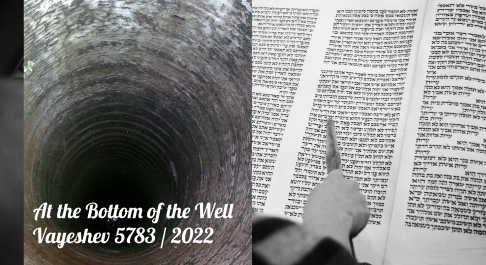
Vayeshev is an amazing Torah portion. Joseph and his brothers, dreams, jealousy, the descent into Egypt and rise into Pharaoh's service, plus the story of Judah and Tamar! And yet when I first turned to the wellspring of Torah to see what calls to me this year, my dipper came up empty. I felt like I had nothing new to say. I felt tapped-out: a well that���s run dry.
I said to a few people: wow, I'm kinda tapped-out this week. Help me out here: if you were going to shul this week, what would you want your rabbi to talk about? And a surprising number of people said: talk about exactly that. A lot of us are feeling empty, tapped-out, struggling. We're heading into our third Covid winter, and to a lot of people it feels like we've given up.
There's cognitive dissonance between, "We just have to live with it," and yet anyone who's had Covid has "increased risk of stroke, blood clots, heart failure and heart attacks." (Source: Johns Hopkins.) Meanwhile there���s a tridemic. And medicine shortages. And the drumbeat of the next presidential election. And let's not forget the climate crisis or global geopolitics.
That's a lot. It's really, truly a lot. And there's also all the ordinary stuff that can make life difficult sometimes: injustice, illness, mortality. If your well feels empty, you are not alone. So what do we do with that? I read the parsha again, and this time I noticed when Joseph's brothers "took him and cast him into the pit. The pit was empty; there was no water in it." (Gen. 37:24)
What does that evoke for you? I get a flurry of images: I���m at the bottom of a stone tower set deep into the earth. The light of the sky is far away. I can���t climb out. Rashi says there are scorpions. Torah doesn���t tell us anything about Joseph���s internal state at the bottom of the pit. But we do know something about the experience he has later, when he���s thrown in prison.
When Joseph is imprisoned, Torah tells us, God is ���with Joseph.��� (Gen. 39:20-21) We don���t know what changed in him or how it changed, but it seems that now he can feel God���s presence. And while in prison he interprets dreams for his fellow prisoners. He helps the people around him. That's one of our tools for tough times: helping others however we can.
When I���ve felt depressed, it���s hard to believe there���s a way out. But when someone I love is at the bottom of that well, I assure them that life won't always be this, and I mean it. I can reach emunah, trust or faith, for others when I can't feel it for me. And I think that���s part of the human condition. As Talmud teaches, "A prisoner cannot free themself from prison."
My friend and hevruta Rabbi David points out that Torah uses the term ������������ ������������������ / beit ha-sohar, while Gemara says ���������� ���������������������� / beit ha-asurim. Sohar means round, like a round dungeon. Ramban says it implies a place of very little light. In other words, Joseph���s symbolically back in the empty well where he began, but now he feels God with him.
Talmud���s term asur means forbidden, prohibited, no way, no you can���t. Beit ha-asurim is the House of Can���t. It���s that helpless, maybe despairing, sense of being stuck. The Gemara is clear that we can���t free ourselves from the House of Can���t. Someone ��� or some One ��� has to free us. And maybe it���s both at once: God deploys us to help each other break free.
As for Joseph, so for us ��� even if we can���t feel God���s presence. (And as always I mean whatever ���the G-word��� evokes for us: justice or love, integrity or hope.) Our job is to help each other trust that, in Torah���s language, God is with us even here. That holiness and justice and hope are with us, even if we can���t feel them. That our cup won���t always feel empty.
If you're not feeling stuck or disheartened or at the bottom of the well, you have an opportunity to reach out to someone who is. And if you are at the bottom of that well, trust me when I promise you that life won't always be this. We can hold on to that for you until you can feel it again.
We can���t free ourselves from the House of Can���t. It���s right there in the name. But we can be liberators for each other, and I���d argue that we have to be. Even (or especially) now, approaching the year���s darkest day, here at the bottom of December���s dry well.
This is the d'varling that I offered at Kabbalat Shabbat services at Congregation Beth Israel of the Berkshires (cross-posted to the From the Rabbi blog.)
December 15, 2022
Recycling (first published in The Light Travels)
The midrash says when the invaders left
they carried off the golden lamp as loot.
The absence of the lampstand was an ache ���
without its light, reserves of hope ran low.
We had to improvise with what we had:
the iron spears our enemies had dropped.
We made our Ner Tamid that year with trash,
repurposing the implements of war
for bringing sacred light. How about now?
The planet is our Temple ��� and it burns.
We can���t just close our eyes. We���re all
indicted by the plastics in the seas.
We need to learn to sanctify what's here:
weave rags to rugs, old tires into shoes,
upcycle guns to instruments of song.
The miracle is not that God steps in ���
it���s that we use these remnants to rebuild:
dedicate them and their sparks to God.
The midrash says. See Pesikta Rabbati 2:1. Ner Tamid. The ���eternal light��� that burns in every synagogue now, evoking the menorah lit in the Temple. The plastics in the sea. The Great Pacific Garbage Patch is one example of vast accumulation of microplastics in our oceans. Old tires into shoes. This is done all over the world, and is beginning to happen in the United States. Upcycle guns. See Pedro Reyes Creates 6,700 Beautiful Instruments from Mexican Drug War Guns. We use these remnants. Innovators have turned plastic waste into bricks. Rededicate. The name Chanukah means dedication. [S]parks to God. From the mystical teaching that creation is filled with holy sparks that it���s our job to uplift.
This is my contribution to this year's Hanukkah offering from Bayit's Liturgical Arts Working Group. Click through for our whole collaborative offering of new poetry, liturgy, and art: The Light Travels.
December 10, 2022
From Dust to Stars (Vayishlach 5783 / 2022)
������������������������ ���������������� ������������������ ���������������������� ������������ �������������� �������� �������������� ����������������������
Jacob was left alone, and a figure wrestled with him until break of dawn...
�������������������� �������� ���������������� ���������������� ���������� ���������������� ���������� ������������������������������ ������������������������������ �������������������������� �������������������������������� ����������������������
Said he, "Your name shall no longer be Jacob, but Israel, for you have striven with beings divine and human, and have prevailed."
In this week's installment of our story, parashat Vayishlach brings us the night-time wrestle between Jacob and the figure tradition names as an angel. This is the encounter from which we get our name as a people. The verse explains the name ���������� / Yisrael as shorthand for the phrase �������� ����������������� / sarita im-Elohim: striven or persisted ("wrestled") with God.
He comes out of that wrestle with a new name and a limp. Life���s challenges (and sometimes injustices) leave most of us with a limp, spiritually speaking. Our task is to persevere. To say to our struggles or losses or grief, ���I will not let you go until you bless me.��� And then to live into the new name, the new chapter of who we can become, granted to us by our struggle with what���s been hard.
So what is this new name about? What (else) does it imply?
One of my favorite tools in the rabbinic toolbox is the use of anagrams and wordplay. Spiritual life can also be playful! So here's some holy wordplay I learned this week from the Kedushat Levi. The name Yisrael contains the letters of ��������� / yashar / "upright," e.g. moral and ethical. The letters in Yisrael can also make ��������� ����/ Li rosh / "head" and "to Me," in other words, a mind turned toward God.
The name Ya'akov contains the word ��������� / ekev / "heel." Name changes in Torah are always spiritually significant, and this is a prime example of that. The name change from Ya'akov to Yisrael symbolizes a profound internal change, a kind of spiritual ascent. His name used to mean "heel," and now it implies God-consciousness. He's shifting from feet in earthly dust to the highest heavens beyond the stars.
Maybe you've heard that there are two kinds of people in the world: those who divide the world into two kinds of people, and those who don't? It turns out Kedushat Levi is in that first category. He says:
Some people are able to maintain awareness of God while doing mitzvot or studying Torah, but not while engaged in business. These people are on a spiritual level that we can call Ya'akov. Others maintain awareness of God all the time, no matter what they're doing. That heightened / constant awareness of God is represented by the name Yisrael. Remember, Li rosh: mind focused on God.
Last week we heard my son teach about Jacob's dream of the ladder, and how he woke with awe but then forgot it. How Jacob lost sight of the "wow" -- how we all lose sight of the wow, all the time. As a people, we take our name not from Jacob, whose name means more or less "the heel," but from Yisrael who lived in awe and could maintain consciousness of God while doing ordinary things.
So what does it mean to maintain consciousness of God while we're out in the world? (And what if we don't "believe" in "God"?) Try this on: living in a way that embodies the name Yisrael means constant consciousness of love and justice, integrity and truth, mercy and judgment -- because "God" is shorthand for all of these. Yisrael means having all of these at the forefront of our minds.
Not just when we're "doing Jewish," but all the time, wherever we are. Justice, love, truth, integrity, a healthy balance of mercy and judgment are always front-and-center. That's what it means to be Yisrael, to be a Godwrestler. Does that change how we treat the grocery store check-out person, the homeless person, the person who gets under our skin? Does it change how we treat each other?
Levi Yitzchak teaches that with the name change from Ya'akov to Yisra'el we shift from ekev to rosh, from heel to head, from the dust of the earth to awareness of the highest heavens and presence of God. Here's a thing our forebears didn't know: we are stardust. Really And so is almost everything. The elements that comprise us began in ancient, distant stars. The dust of the earth is also the heavens.
It shatters Kedushat Levi's 18th-century binarism. Across all of our binaries -- me vs. you, us vs. them, earth vs. heavens, dust vs. stars -- there is a deeper truth. All we need is a perspective shift. When we act with integrity and awareness, we live up to our name Yisrael -- and when we feel mired in the mud or stuck in Ya'akov's wrestle, we can remember that there is also holiness in the dust beneath our feet.
This is the d'varling that I offered at Shabbat morning services at Congregation Beth Israel (cross-posted to my From the Rabbi blog.)
Shared with gratitude to the Bayit board for learning together.
December 6, 2022
A mother's blessing
Practicing one last time before Shabbat morning services began...
These are the words I spoke to my son at his bar mitzvah, which I share here with his permission.
Drew, when you were small I remember reading in some parenting book that one way to gauge a child���s temperament is to bring them to a crowded place and set them down. Some would cling to a parent���s leg. Others would run off to explore. I didn���t even need to try the experiment: I knew you���d be running off to a new adventure.
You share that spirit with my grandfather Eppie, from whom you inherited your Hebrew name. Eppie was brilliant; was good at fixing things with his hands; and was a terrific storyteller. I see echoes of him in you.
Before you were born my spiritual director said, ���this child will be one of your greatest teachers.��� I laughed ��� what, my kid���s going to be the next Dalai Lama? But he was right. In just these first 13 years I���ve learned so much from you. How to find joy in leaf piles and snowfalls and Minecraft. How to dread the winter a little bit less, because as you told me when you were seven, early nightfall means more time to see the stars.
There is so much about you that I admire. I admire your kindness. I admire how deeply you care about your friends, and how you want to make the world safer for them.
I admire your empathy. I admire your curiosity about how the world works, and your determination. When you decide you want to learn something, you stick with it ��� whether it���s chanting Torah, or speed-solving a Rubik���s cube.
I admire the way you grapple with what it means to act ethically. You���ve watched The Good Place twelve times, which means I have too, and we have regular conversations about whether Judaism favors deontology or virtue ethics.
I admire your boldness and love of color. Your fabulous nails and brilliant suit remind me of your Nonni, though I���m not sure she could have wrapped her head around the colorful manicure. And the way you make a point of checking on me reminds me of how Papa used to tell you to take care of me, every time he left here or we left Texas.
I���ve heard you say you���re ���not very good at spiritual stuff,��� but you make spontaneous blessings: usually the ��������������, or �������� ������������ when something wonderful happens ��� or as we pass a car accident, reminding God who we need God to be, the One Who is good and does good. You understand how pausing to make Shabbat can change how we feel at the end of a tough week. You call me over to notice the moon or the sky. I admire how you don���t pretend away the things that are difficult ��� the pandemic, or a grandparent���s death ��� but you still notice the beauty in our world.
It is amazing to watch you grow ��� and I don���t just mean your height! Jewishly, today I���m no longer responsible for teaching you kid stuff. You���re already beginning to approach your Judaism and your life with maturity (aside from the jokes about Achashverosh and his ���scepter.���) Today you begin a new phase of your Jewish life. We don���t yet know what this new chapter will be ��� that���s partly up to you.
The blessing that tradition offers me for this moment is:���������������� ���������������������������� �������������������� �������� ������.
Blessed is the One Who has freed me of some responsibilities and conferred new ones on you!
When I became bat mitzvah, Nonni wrote a blessing for Papa to read to me. Two of the things they said, I want to offer now to you, from me and from them: May your cup always be full ��� and when life gives you lemons, may you make lemonade. May you always know yourself to be both a son of the covenant, and a citizen of the world.
They would be so moved to see you reading and teaching Torah, taking your place in the chain of our generations and the flow of Jewish tradition. I think they are proud of you today. And I am so proud of the hard work you���ve done. Every day I thank God that I get to be your mom.
May a life of mitzvot nourish you. May you continue to find new meaning in Torah and Jewish tradition, noticing how they change as you learn them more deeply and as you learn yourself more deeply. May you experience Torah and Jewish tradition the way you���ve experienced so many of your favorite stories: re-reading, re-encountering, finding more depth every time you return.
May you always stand up for the vulnerable. May you always act with integrity and listen to that little voice that says, ���Eleanor, don't grab that handful of olives from the salad bar��� ��� I mean, ���Drew, you know what���s wrong and what���s right.���
May you always find beauty in the world. May you always be curious enough to learn about others, and bold enough to let your own light shine. May you remember that ���God is in this place,��� or at least God can be in this place if we pause to feel the wow. And may you always know how much we love you, and may that love stay with you in all of your life���s experiences to come.
December 2, 2022
Bar mitzvah in a time of Covid
View from the bimah.
In a way, I started imagining this weekend the moment I became pregnant. I've made a conscious effort all along not to become attached to any particular vision for who my kid will be. Still, I couldn't help picturing a celebration of b-mitzvah. This tradition is so core to who I am, who I've chosen to be.
Of course, I couldn't have imagined the years of pandemic that preceded this weekend. The b-mitzvah celebrations with exactly 10 in the room, six feet apart, masked and distanced... It's not like that now -- though now most people test at home, so we don't really know what the numbers are anymore.
One of my kid's best friends tested positive this morning and won't be able to join us. Of course the worries mount. What if someone I love gets sick at this celebration and doesn't recover? (What if I get sick again and this time the impacts on my longterm health are worse?) What if, what if...?
We've asked everyone who's traveling to test before coming. We all tested again this morning. Masking protocols are still in place at my shul. We're all vaccinated. We've done everything we can to keep each other safe. "Breathe," R. David said to me this morning. "Let yourself celebrate. Your son is 13."
I've been so focused on pandemic protocols and on logistics -- from ordering kippot to setting up chairs -- that I haven't let myself do that, yet. Three of my parents' siblings will be here. Three of my own siblings will be here! And many people whom we love. After these last years, that feels miraculous.
Tonight when we welcome Shabbat, I'm going to do everything I can to let go of the logistics and the pandemic anxieties. What matters is that my son is becoming bar mitzvah, and I feel so lucky to be his mom. We can only walk through this doorway once. I want to be as present as I can.
November 18, 2022
The moments in-between (Hayyei Sarah 5783)
In this week's Torah portion, Hayyei Sarah, I was struck this year by this little fragment of a verse:
������������������ ���������������� ������������������ ���������������������� ������������������ ������������
"Isaac went out walking in the field toward evening." (Gen 54:29)
That's how Sefaria renders it. But lasuah doesn't mean walking. It means conversing. Who was Isaac talking to as he walked at twilight? According to Talmud, he was talking to God, and in this moment Yitzhak established minhah, the afternoon service. (And Avraham established shacharit, morning prayer. And Jacob coming "upon a certain place" and stopping for the night, established ma'ariv.)
Are these associations between patriarchs and our standard three prayer-times in the plain Torah text? Of course not! But with this interpretation (which hangs on Hebrew wordplay) Talmud is signaling what our rabbinic forebears thought was important. Prayer is an enduring tool in our spiritual toolbox. It's part of our inheritance, and it's been a part of Jewish life since the days of the patriarchs.
About 500 years later, Rashi (11th c. CE) agreed that lasuah means "to meditate" or "to pray." Ibn Ezra (12th c.) offered that it might mean "walking among the trees to meditate." Notice how now there's a nature component. The Sforno (16th c.) says that Isaac had detoured from his regular path to stroll in the fields on that day so he could pour out his heart to God. Maybe he needed solitude.
Centuries later, Reb Nachman (d. 1810) taught the practice of hitbodedut, walking in the forest or the fields and speaking out loud with God. Reb Zalman z"l used to imagine Shekhinah in the passenger seat of his car, and as he drove, he'd speak out loud to God. (When I'm alone in the car, I do too.) In the forest God feels lofty and grand to me. In my car, it's more like pouring out my heart to a friend.
In this week's Torah portion Sarah dies, and her family comes together to bury her. And later Avraham dies, and the family comes together again to bury him. And Isaac gets married, and it seems clear that the generations will continue, even with the matriarch and patriarch gone. There's sadness, and also continuity and joy. These are all big moments with a lot of emotions in any family, then or now.
And in the midst of all of these big emotional moments, Isaac talks to God alone in the fields. Torah is reminding us that we need space for quiet and for spiritual practice, whatever those words mean to us. This could take a lot of forms. Daily prayer services, sure. Or a walk along a dirt road, a forest, a field. Or yoga or meditation, or gazing at the stars or the moon, or walking our synagogue's labyrinth...
This is true whether or not we "believe" in "God." Even if we're just naming what we feel and listening for that still small voice within, that practice can make a difference. Life is marked by big lifecycle events: births and deaths, marriage and divorce, becoming b-mitzvah. But it's also made up of all the tiny moments in between. And those small everyday moments can also be holy.
May our spirits be nourished by the forest and the fields, the twilight and the trees,
and the time to take them in, this Shabbat and always.
This is my d'varling from Kabbalat Shabbat services at Congregation Beth Israel of the Berkshires (cross-posted to my From the Rabbi blog.) Photo by J. A. Woodhouse.
November 12, 2022
Be Like Avraham (Vayera 5783 / 2022)
The Dead Sea (called the Salt Sea in Hebrew.) Some connect these salt flats with the story of Sodom and Amora, in which Lot's wife is turned into a pillar of salt.
As Jews we trace our spiritual lineage back to Avraham. We call him "Avraham Avinu," Abraham our Father. What was it that made Avraham worthy of being the progenitor of the entire Jewish people? Hold that question; we'll come back to it. First, a quick recap of one story from this week's parsha.
God says: the outcry from these cities is so great! If it's as bad as I hear, I'm going to wipe them out. Avraham pushes back: c'mon, God, is that fair? What if there are 50 righteous people? Or 45? Or 40? and he bargains God down to 10. For the sake of a minyan of righteous people, they'll be spared.
This isn't the first time God has gotten angry at humanity for wickedness. Though last time (the Flood) was a "gonna erase the Earth" kind of thing, a reboot of humanity. This time God's considering destroying a smaller subset: two towns from which apparently there is an outcry of suffering.
Anyone have theories on what the sin of Sodom was, to merit this kind of response from God?
In the words of the prophet Ezekiel, around 580 BCE, ���This was the guilt of your sister Sodom: arrogance! She and her daughters had plenty of bread and untroubled tranquility, yet she did not support the poor and needy.��� That's a pretty damning indictment... and is still all too real.
Another interpretation is that Sodom really didn't welcome the stranger. When two messengers of God (aka angels) arrive to check out the scene, Lot urges them not to sleep outside. Sure enough, come nightfall, men bang on his door demanding that he hand over the strangers to be raped.
(Lot says, "Oh, no, don't do that -- take my daughters instead." Um... not actually an improvement.)
In the end, ten righteous souls can't be found, and the towns are destroyed. But this story is one of the reasons why God blessed Avraham to become the father of the Jewish people. Faced with God's initial plan, Avraham demands, "Shall not the Judge of all the earth deal justly?"
Avraham stands before the Kadosh Baruch Hu, God Almighty, and insists that God live up to God's own standards of righteousness. And God agrees. Sometimes I think of much of Genesis as God learning how to be in relationship with us. Like a new parent, finding that children are unpredictable.
Midrash speaks of angels created before us. But unlike the angels, we have free will. I like to imagine that God was pleased when Avraham pushed back. Maybe God was happy that one of God's children had become ethically aware enough to legitimately challenge God on a decision like this one.
Later in this parsha, God will make a different ask of Avraham and Avraham will not push back. That's the story of the binding of Isaac. To me, that was not Avraham's finest moment. And after that story, God never speaks to him again, which to me is an indication that yes, Avraham made a mistake.
Maybe there's comfort in knowing that even our greatest spiritual ancestors made mistakes. But pushing God to act justly is a move worth emulating. And readiness to question God, to rage against injustice, and to demand better for our world, is a very Jewish thing. It's a hallmark of who we are.
Avraham argued with God. And Moshe, Elijah, Jeremiah -- all of them disagreed with God, or pushed back, or asked God to change a divine decree. The Hasidic master R. Levi Yitzchak of Berditchev famously put God on trial, arguing that the Jews deserved better than what we'd gotten.
Perhaps consciously following in those footsteps, Jews in Auschwitz did the same one Rosh Hashanah. They called God to judgment for the horrific suffering of the Holocaust. Both stories end the same way: after declaring God guilty, they prayed and said Kaddish, proclaiming God's sovereignty.
Pushing back against injustice doesn't mean giving up on God or on hope. As Jews, we're called to argue with God and to decry injustice. Far from damaging our hope in a better future, that outcry is precisely how we move toward that better future. We demand justice, and we build it ourselves.
Being a Jew means being willing to call things what they are. It means speaking truth to power, even to God. And it means pursuing justice and doing what's right. Feeding the hungry, protecting the vulnerable. No matter who wins elections, those mitzvot are our covenant and our work in the world.
This is the d'varling Rabbi Rachel offered at Shabbat morning services at Congregation Beth Israel of the Berkshires (cross-posted to the From the Rabbi blog.)
November 10, 2022
Almost time
A sliver of the invitation.
It's strange to be approaching a lifecycle event with my parents gone. They would have been so excited about my son becoming bar mitzvah. I still sometimes have the urge to call to tell them what we're planning -- and then I remember. I speak to them when my house is empty, but it's not the same.
It's strange to be approaching a lifecycle event that isn't death-related. The most recent times I've gathered with my extended family have been Dad's funeral (in early March of 2022), the unveiling of Mom's headstone (February 2020, just before Covid began), Mom's funeral (11 months prior.)
I was so shell-shocked at the funerals. We all were. They were sorrowful occasions in which we found occasional sweetness. This time it's the other way around. A sweet reason to gather, tempered by the sadness of the fact that the patriarch and matriarch are gone. They would have loved this so much.
It's strange to be approaching a lifecycle event that's been so long in the planning. When my son was six, he went with me to Rhode Island so I could preside over the bat mitzvah of the daughter of a dear rabbi friend (so he could simply be Abba / Dad that day, instead of also being The Rabbi.)
I explained this to my six year old. Without missing a beat, he asked, "so when I have a bar mitzvah, will you have another person be the rabbi so you can be mom?" I told him that yes, that was my plan, and asked if he had any suggestions. "Obviously," he said, all but rolling his eyes. "Uncle David!"
I remember texting David in that moment to tell him that my son wished to engage him for a bar mitzvah some seven years hence, and laughing. (After all, my son was only six. Another seven years was more than his whole lifetime over again.) And now here we are. It's three weeks away.
I'm excited and sad and scattered. There are so many details and logistics, hotel reservations, caterers, the whole megillah. And my parents aren't here, and I'm not sure that will ever stop aching. And yet my son and Judaism are two of my greatest joys, and I can't wait to celebrate them together.
I've been working on what I want to say to him when we offer parental blessings toward the end of Shabbat morning services. There's so much I wish I could convey -- about our traditions, about who he's becoming, about my dreams for what his life might be. I'll only manage to say a little of it. That's ok.
It's strange to be approaching a lifecycle event that's a milestone in his life, not mine. It feels huge for me because I care so much about this and about him, but this is his journey of making Judaism his own. My job is to rejoice, and to bear witness, and to breathe deeply and do a little more letting-go.
Rachel Barenblat's Blog
- Rachel Barenblat's profile
- 6 followers


